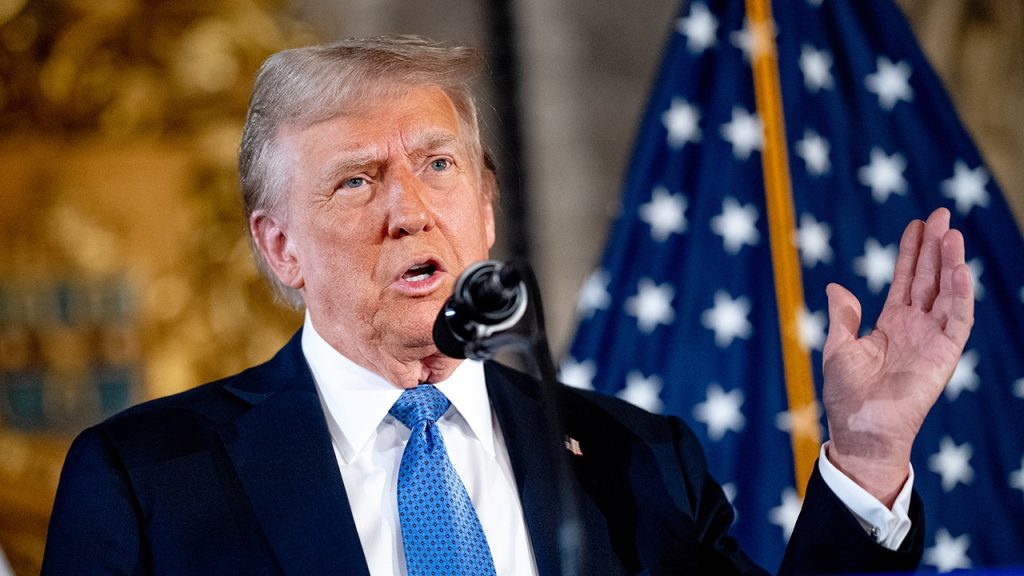Trump’s Frustration with Senate’s “Blue Slip” Tradition
In a recent public statement, President Donald Trump expressed significant frustration with the Senate’s long-standing “blue slip” tradition, characterizing it as an unconstitutional limitation on his presidential appointment powers. His concerns specifically target situations where a single Democratic senator can effectively block his judicial and U.S. Attorney nominations. This tradition, though not codified in law, has been a Senate custom for approximately a century, allowing senators to have input on federal nominations affecting their states. Trump claims this practice has essentially stripped him of his constitutional right to appoint officials in states with Democratic representation, creating what he sees as an unfair advantage for the opposition party in the judicial appointment process.
Senator Chuck Grassley has emerged as a defender of this tradition, viewing it as an important norm that maintains balance and ensures states have meaningful input in the federal appointment process. The tension highlights the constitutional framework where the president holds nomination power while the Senate retains confirmation authority. This procedural dispute takes place within a broader context of judicial appointments, which represent some of the most enduring aspects of a president’s legacy. The disagreement between Trump and Grassley reflects different interpretations of how nomination processes should function, with Trump favoring executive authority while Grassley emphasizes the value of Senate traditions that provide checks on that power.
Trump’s frustration isn’t new – he previously labeled the blue slip tradition as a “hoax” and a “scam” that Democrats exploit to obstruct his nominees. In a July statement, he argued that this “ancient, and probably unconstitutional, ‘CUSTOM'” prevents him from appointing his chosen candidates. The president’s comments suggest he views the practice as a partisan tool rather than a legitimate Senate procedure. This frustration seems to have intensified as he compares his current nomination success rate with his first term, during which he appointed 234 federal judges, including three Supreme Court justices and 54 appellate court judges. In contrast, only five judicial confirmations have occurred in the first seven months of his current term, creating a sense that his appointment agenda is being thwarted.
Trump’s criticism includes a direct challenge to Senator Grassley, suggesting he should stand firm against Democrats and “tell the Democrats, as they often tell us, to go to HELL!” This combative language reveals Trump’s willingness to apply political pressure to advance his nominees. The president further claimed that the current system only allows him to confirm Democratic candidates for “these most important positions,” suggesting he feels forced to compromise on his preferred nominees. This statement reflects his broader frustration with institutional constraints on executive power and his preference for a more direct appointment process that would give him greater autonomy in selecting officials who align with his administration’s priorities.
The timing of Trump’s comments appears connected to a recent legal ruling involving Alina Habba, who a U.S. District Judge determined had been unlawfully serving as acting U.S. Attorney for New Jersey beyond the permitted temporary timeframe. This case highlights the practical implications of nomination delays and the administration’s attempts to work around confirmation obstacles. The ruling seems to have intensified Trump’s concerns about his ability to staff key positions with loyalists, particularly in states where Democratic senators can influence the nomination process through the blue slip tradition. This specific case exemplifies the broader institutional tension between presidential appointment prerogatives and Senate confirmation procedures.
This dispute over blue slips is ultimately about the balance of power between the executive and legislative branches when it comes to judicial appointments. While presidents naturally seek to maximize their appointment authority, the Senate has historically maintained various mechanisms to preserve its constitutional advice and consent role. Trump’s pressure campaign against the blue slip tradition could significantly impact his ability to fill judicial vacancies in the coming months. The outcome of this conflict will not only affect the immediate appointments at stake but could potentially reshape nomination procedures for future administrations. As this tension continues, it underscores the evolving nature of constitutional norms and the ongoing negotiation between presidential authority and legislative prerogatives in the American system of government.


